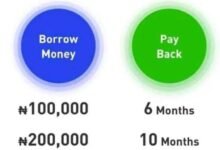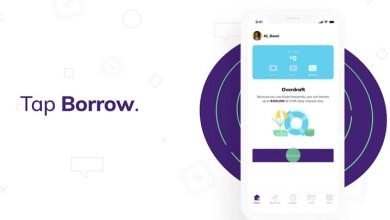Student Loan in Nigeria – Requirements, How to Apply, Repayment, FAQs.
Student Loan in Nigeria – Requirements, How to Apply, Repayment, FAQs.
Student loans in Nigeria have become increasingly popular as the cost of education continues to rise. With the high demand for tertiary education, many students find themselves struggling to finance their studies. Fortunately, several institutions and organizations offer student loans to help alleviate the financial burden.

What is a Student Loan?
A student loan is a type of financial aid that is provided to students to help cover the cost of their education. Student loans are different from scholarships and grants, which do not need to be repaid. Student loans are borrowed funds that must be repaid with interest over a specific period.
Types of Student Loans in Nigeria
1. Federal Government Student Loan Scheme (FGSLS)
The Federal Government Student Loan Scheme (FGSLS) is a government-backed loan scheme aimed at helping students finance their education. The scheme is administered by the Tertiary Education Trust Fund (TETFUND) and provides loans to undergraduate and postgraduate students in federal and state-owned universities in Nigeria. The loan amount ranges from N200,000 to N400,000 per academic year, depending on the level of study.
Federal Government Student Loan Scheme (FGSLS) (Eligibility Criteria)
To be eligible for a FGSLS loan, a student must:
- Be a Nigerian citizen;
- Be enrolled in a federal or state-owned university in Nigeria;
- Have a minimum CGPA of 2.0;
- Provide evidence of financial need; and
- Meet other requirements as specified by TETFUND.
2. Commercial Banks Student Loan Scheme
Several commercial banks in Nigeria offer student loans to eligible students. These loans are typically secured by collateral such as property or assets owned by the student’s parents or guardians. The loan amount and interest rate vary depending on the bank’s policy and the student’s creditworthiness.
Commercial Banks Student Loan Scheme (Eligibility Criteria)
The eligibility criteria for commercial banks student loans vary from bank to bank, but generally, a student must:
- Be a Nigerian citizen;
- Be enrolled in an accredited institution in Nigeria;
- Have a good academic record; and
- Provide evidence of financial need or collateral (if required).
3. State Government Student Loan Scheme
Some state governments in Nigeria offer student loans to students enrolled in institutions within their respective states. These loans are usually administered through state-owned development agencies or banks and provide financial assistance to students who would otherwise be unable to afford their education. The loan amount and interest rate vary depending on the state’s policy and the student’s financial need.
State Government Student Loan Scheme (Eligibility Criteria)
The eligibility criteria for state government student loans also vary from state to state, but generally, a student must:
- Be a Nigerian citizen;
- Be enrolled in an institution within the state; and
- Meet other requirements as specified by the state’s development agency or bank.
How to Apply For a Student Loan in Nigeria
Applying for a student loan in Nigeria can be a daunting task, especially for first-time applicants. However, with the right information and guidance, the process can be smooth and stress-free. In this article, we’ll provide a step-by-step guide on how to apply for a student loan in Nigeria.
Determine Your Eligibility
Before applying for a student loan, you need to determine if you’re eligible. To be eligible, you must meet the following requirements:
- Be a Nigerian citizen or have permanent resident status.
- Have been admitted into a recognized tertiary institution in Nigeria.
- Have completed your secondary school education (SSCE/GCE/NECO) with at least five credits in relevant subjects.
- Be enrolled in a full-time undergraduate or postgraduate degree program.
- Have a good academic record (Cumulative Grade Point Average (CGPA) of 2.0 or equivalent).
- Provide evidence of financial need (e.g., parent’s or guardian’s income statement).
- Not have defaulted on any previous student loans or debts owed to any financial institution in Nigeria.
Choose a Student Loan Provider
There are several student loan providers in Nigeria, including commercial banks, microfinance banks, and development finance institutions (DFIs). Some popular options include:
- Central Bank of Nigeria (CBN) Development Finance Department (DFD): This is the largest provider of student loans in Nigeria, offering loans to undergraduate and postgraduate students in accredited tertiary institutions across the country. The interest rate is currently 5% per annum, and the repayment period is 10 years after graduation or six months after securing employment.
- Bank of Agriculture (BOA): This bank offers loans to students pursuing agriculture-related courses in accredited institutions across Nigeria. The interest rate is currently 9% per annum, and the repayment period is 10 years after graduation or six months after securing employment.
- First Bank of Nigeria: This bank offers loans to undergraduate and postgraduate students in accredited institutions across Nigeria at an interest rate of 9% per annum for undergraduates and 10% per annum for postgraduates. The repayment period is five years after graduation or six months after securing employment, whichever comes first.
- Fidelity Bank: This bank offers loans to undergraduate and postgraduate students in accredited institutions across Nigeria at an interest rate of 9% per annum for undergraduates and 10% per annum for postgraduates. The repayment period is five years after graduation or six months after securing employment, whichever comes first.
FAQs
What Are the Eligibility Requirements for Student Loans in Nigeria?
To qualify for a student loan in Nigeria, there are certain eligibility requirements that applicants must meet. Firstly, applicants must be Nigerian citizens. Secondly, they must have secured admission to an accredited institution of higher learning in Nigeria or abroad. Additionally, applicants must have a guarantor who meets the requirements set by the lending institution. It’s important to note that eligibility requirements may vary between different loan providers, so it’s crucial for applicants to thoroughly research and understand the specific criteria for each loan program.
How Do I Apply for a Student Loan in Nigeria?
The application process for a student loan in Nigeria typically involves several key steps. Firstly, applicants need to identify a suitable loan provider and thoroughly review their eligibility requirements and application procedures. Once a suitable provider has been identified, applicants will need to complete the necessary application forms and gather any required documentation, such as proof of admission to a higher learning institution, academic transcripts, and a guarantor’s information. After submitting the application and supporting documentation, the loan provider will review the application and make a decision based on the applicant’s eligibility and creditworthiness.
What Are the Repayment Options for Student Loans in Nigeria?
Repayment options for student loans in Nigeria can vary depending on the specific terms and conditions of the loan agreement. In general, most loan providers offer flexible repayment plans that allow borrowers to make monthly payments over an extended time. It’s important for borrowers to carefully review and understand the repayment terms, including the interest rate, grace period, and any potential penalties for late or missed payments. Additionally, some loan programs may offer income-driven repayment plans that adjust the monthly payment amount based on the borrower’s income level.
Conclusion
Navigating the process of obtaining and repaying a student loan in Nigeria can be a significant undertaking. By understanding the eligibility requirements, application process, and repayment options, individuals can make informed decisions about pursuing higher education with the assistance of a student loan. Potential borrowers must conduct thorough research and seek guidance from financial advisors or loan providers to ensure they fully comprehend the terms and conditions associated with student loans in Nigeria.









